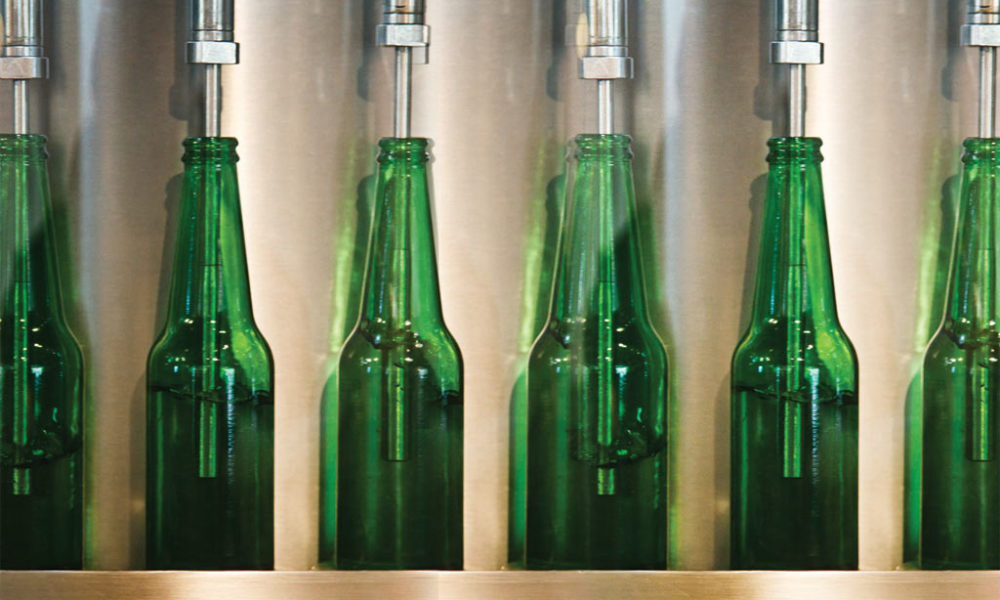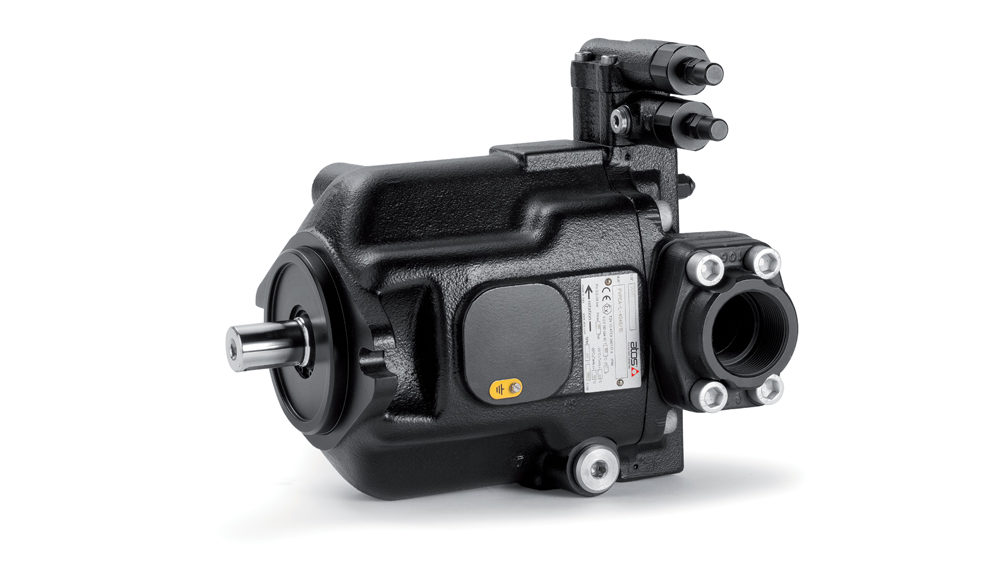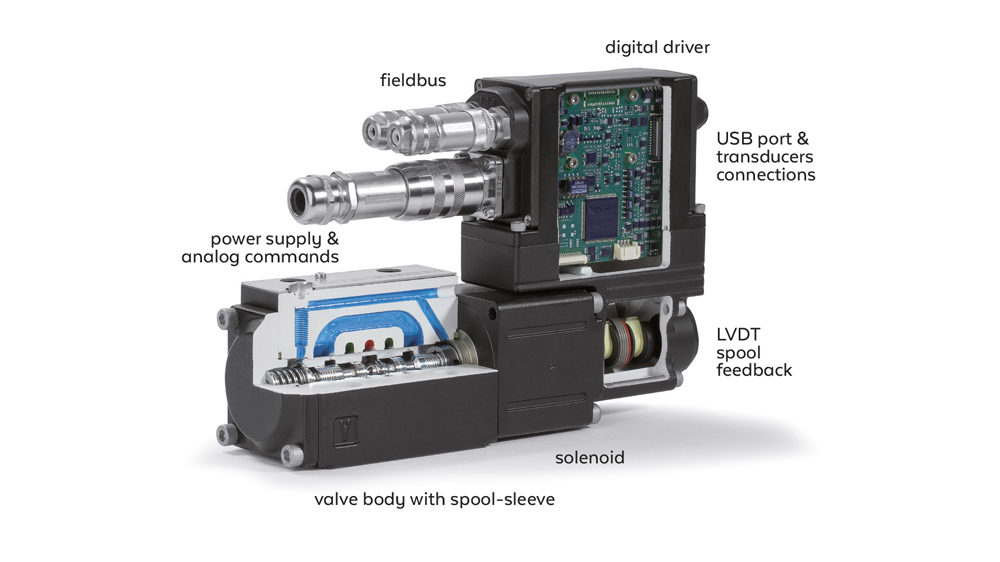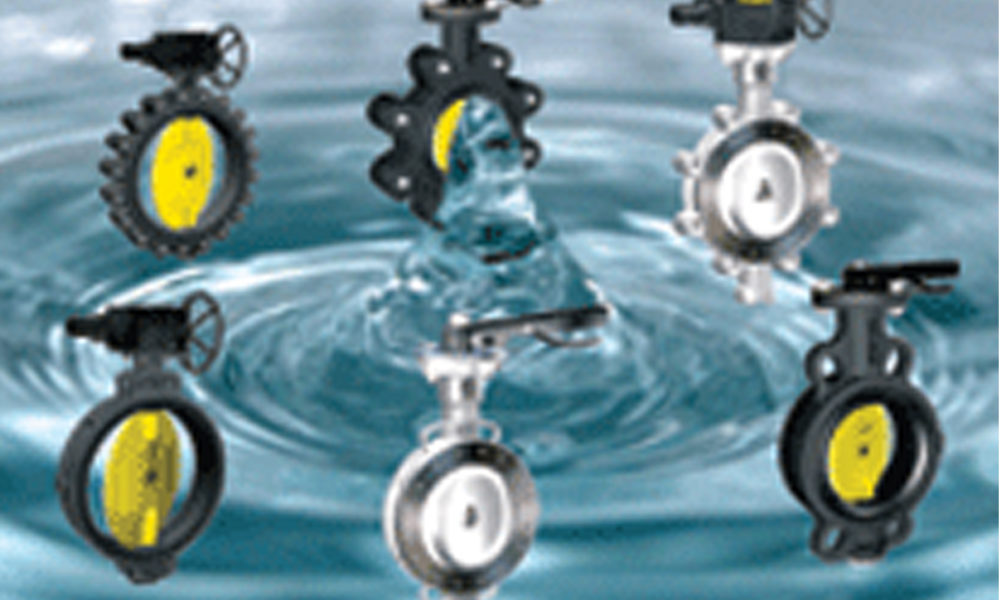Pumps and Valves: The life of F&B industry
November 1, 2016 5:28 pm
Food and Beverage Industry is an area where Pumps and Valves play a lead role. We take a look at the innovations that have come up in the area of Pumps and Valves.
With the day to day modernisation and advancing of the technology, our lives have become very much convenient. The Midas of modernisation has also touched the pumps and valves industry.
Amongst all the industries, it is the food and beverage industry that ensures that the products are created, packed and consumed in the safest possible way. The automation equipment that handles the food products are crucial when it comes to the quality of the material that is being processed.
Even though the system is automised, there are chances that unwanted materials get introduced in the foods and beverages. As a product is processed, through handling equipment, it can move through a series?of pumps, motors, valves, sensors and fittings, where lubricants such as O-ring grease can come into direct contact with it. FDA has clear guidelines on contaminants, which, at acceptable levels, are known to not cause harm.
However, newer automated system designs that employ pre-packed, sterilized, FDA-approved tubing or membrane bags can offer a new alternative for potentially reducing bacterial contamination. In this case, possible contamination is further reduced by using a pinch valve that interacts with the tubing and never touches the beverage or food media being processed.
With traditional systems, where the composition of the component material is in direct contact with the food or beverage, a pause or shutdown of the line is needed to complete periodic cleaning or service. By utilizing components such as pinch valves, along with tubing or membrane barrier material, servicing or replacing that component becomes a quick and easy task. A pinch valve can be quickly serviced or replaced without a complete shutdown and re-cleaning of the line which can maximize productivity and reduce costs.
Pinch valves can also be designed for a complete wash down cleaning or sterilization procedures that does not require them to be removed from equipment. For example, a similar market, biopharm, uses traditional stainless steel equipment for bioreactor cell growth and downstream processing. Newer technological advancements over the past decade have spawned a new method that uses single-use disposable technologies, referred?to as “SUD” or “SUT.” These have been adopted by pharmaceutical manufacturing companies as an effective alternative and complement?to traditional methods. SUDs utilize disposable, closed membrane bags and tubing while traditional systems had the media running in direct contact through many wetted components.
Pinch valve performance is primarily determined by type. Electric-solenoid and air-pneumatic valves are designed to work effectively with different linear force output capacities and sizes of tubing or membrane bag material. Solenoid pinch valves are generally sized to work with tubing up to 7/16 in. in outer diameter, durometers of 65A and average media pressures of 20 to 30 psi. Pneumatic pinch valves, on the other hand, can work with tubing up to 1.6-in. OD, durometers up to 75A and media pressure up to 80 psi. Each application should be examined to determine how the tube sizing, hardness and media pressure would impact valve choice.
Speaking on the innovations in the pump and the valves for the Food and Beverage Industry, Steven Coupal, Global Diaphragm Pump Engineering Leader ARO, said “Food and beverage industries have very specific criteria when selecting a pump that will best retain product quality, consistency and provide rapid production for faster market delivery. Industries that manufacture products within sanitation and health sensitive environments rely on pumps manufactured to stringent guidelines laid down by various agencies like FDA, EHEDG or 3-A.”
“This is leading to adoption of more innovative polymers and improved processes for maintaining the surface finishes laid down by these agencies.
These guidelines are essential for ensuring that the pumps & machinery intended for Foods, Cosmetics, and Pharmaceuticals must be designed or constructed to avoid risk of infection, sickness or contamination.”
These pumps are used in many food and beverage industry applications, including transferring and batching materials and fluids of various viscosities such as sugar, dough, juice concentrate, sauces, jellies, jams, beer and wine. Whether it is injecting food products into moulds, dispensing sauces and syrups into mixing tanks, or transferring and filtering beer, wine or distilled spirits, pumps are a necessity for processing food and beverages.
Speaking about the offerings of Ingersoll Rand, Coupal said, “ARO, a brand of Ingersoll Rand and a leader in fluid management for more than 86 years, provides FDA-compliant diaphragm pumps as part of their EXP Series. These pumps deliver superior fluid safety, reliability and efficiency, thanks to innovative pump designs.” He further said, “Our EXP Series pumps have many features to gently transfer fluids while meeting production goals. Some of these innovations include the ability to: pass large shear-sensitive solids without degradation or heat build-up, run dry to eliminate the risk of pump damage, pump fluid gently so as not to create froth or fluid separation and allow higher temperatures during operation through the use of ball valves.”
Additionally, Coupal feels that there are several things to look for in an FDA-compliant diaphragm pump that will maximize its reliability and longevity, while minimizing problems associated with a contaminated air supply. “For example, as with all ARO EXP Series pumps, the FDA-complaint pump uses air-motor technology that features a unique D valve design. D valves are constructed with ultra-hard ceramic that is impervious to dirt and grit in the air. It also includes Quick Dump Checks to eliminate pump ice-up, as well as a corrosion-resistant and a durable thermoplastic exterior. ARO FDA-complaint pumps also use u-cups that are less likely to fail due to poor air, compared to glide rings, or lap fits, that are used in some pumps.”
Instead of using bolts that thread on and off, the fluid intelligence experts at ARO have designed band clamps that make it quick and easy to disassemble and reassemble the pump for clean in place washing. Operators can quickly and easily open the pump up for daily cleaning inside and out of which help to maintain sanitary conditions, and keeping the manufacturing process moving.
“Air-operated diaphragm FDA-compliant pumps deliver the reliability, ease of use and time savings that food and beverage industries need for processing product materials and fluids. ARO FDA-compliant pumps from their EXP Series are the right choice for achieving greater consistency, while maintaining the quality of the finished product”, concludes Coupal.
Danfos India is another name in the areas of refrigeration and air conditioning. According to Rajesh Premchandran, Vice President, Refrigeration and Air conditioning Division, Danfoss India, the recent trend in pumps and valves sector is that the market offerings are more energy efficient. “The stakeholders, both, in the public and private sector are opting for energy-efficient pumps which help save energy and costs for the users ultimately”, he says.
“Today’s food and beverage production lines need higher efficiency, more flexibility and greater reliability in order to achieve effective and ongoing cost reductions. To address this, Danfoss offers high pressure pumps which offer multiple benefits for the food and beverage industry”, says Premchandran.
Sharing the details about the offerings of Danfos in this section, Premchandran said, “PAHT pumps from Danfoss are renown for zero risk of contamination and maintaining absolute hygiene in dairy industries because of deployment of ultra clean technology where no oil is used. Some of the benefits include low maintenance costs thanks to its efficient design and stainless steel construction, service intervals up to 8,000 hours can be expected, low energy costs due to its highly efficient axial piston design, easy installation and fulfils the stringent hygiene requirements, VDI 6022, HACCP.”
Grundfos India is another prominent name in the areas of pumps and valves. Thirumurugan Rajaram, Manager- Business Development (Industry), Grundfos India speaks about the various offerings of Grundfos in the area of food and beverage industry.
“For Bottle washing, we have multistage end-suction pumps offer efficient and reliable operation throughout the washing cycle. These robust pumps easily handle temperatures up to 120°C and are available in cast iron as well as in stainless steel. The latter material makes them suitable for bottle washing processes where even the most aggressive detergent is used. Sophisticated digital dosing pumps are available for accurately dosing chemicals and detergents of all kinds”, Rajaram says.
CIP (Cleaning In Place) and SIP (Sterilization In Place) systems are ideal in industries where contamination must be avoided at all costs. Speaking about the contribution of Grundfos in this area, Rajaram says, “Grundfos CIP pumps, handling temperatures all the way up to 180°C, are made of stainless steel to be able to withstand the aggressive detergents encountered in cleaning processes. As for the slightly more demanding SIP process, Grundfos multistage pumps are used to feed the boiler producing the steam that efficiently cleans for example bottles at very high temperatures.”
Cookie Consent
We use cookies to personalize your experience. By continuing to visit this website you agree to our Terms & Conditions, Privacy Policy and Cookie Policy.












